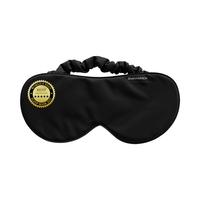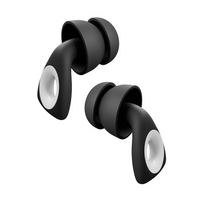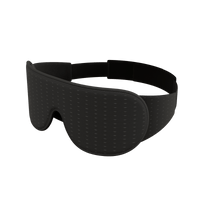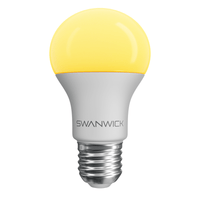Do sunglasses really protect your eyes, you ask?
Well, in Sunnies Valley there isn’t a one-shape-size-color-UV-protection-level fit all. The right choice of sunglasses can highly depend on factors such as your eye color, medication intake, your medical condition, the nature of your outdoor activities, and ultimately if you want healthy eyes.
That last factor is quite an important one, isn’t it?
Or are you among the 47% (according to the AOA's 2015 American Eye-Q® survey) of American consumers that don’t check the UV protection level before grabbing a fashionable pair of sunglasses?
News flash! It isn’t just about fashion or comfort anymore. It’s about preserving your vision!
Everyone should wear 100 percent UV protection sunglasses—especially if you experience increased light sensitivity, have light eyes, spend a lot of time outdoors or take certain medications—no questions asked.
You really don’t have to fork out a lot of money for effective sunglasses, but here’s what you need to do.
A checklist if you will. 👇
What to look for when buying sunglasses?
-
Choose sunglasses that block 100 percent of UV rays. Look for a label that reads "UV400" or "100% UV protection". If you’re unsure of your shade’s level of UV protection, let your local optician have a peep (most opticians test for free and it takes less than 30 seconds).
-
The darker the better? Nope! Swerve the common belief that the darkness of the lens indicates the strength of UV protection. Think about it. When you wear dark lenses your pupils open up and allows more light to enter. And while it may filter some light and glare, it increases your risk for cataracts, macular degeneration, and ocular melanoma — a rare type of cancer. Your optician can help verify the effectiveness of your shades for you. No problemo!
-
Consider the shape. For extra protection of the delicate skin around your eyes, try a pair of shades with large lenses or a wraparound style — especially if you’re going to splash in the water, lay on the sandy beach, and be around snow (aka highly-reflective-peeper-damaging-surfaces) for an extended duration. A wraparound will also guard your eyes against the wind that can dry out your eyes. Just saying!

-
Examine the overall appearance carefully. Be sure the lenses match in color/tint and show no signs of distortion or imperfection (a gray tint is particularly effective on the road as it offers the best color recognition).
-
Make sure your polarized lenses provide maximum UV protection. Polarization doesn’t absorb UV light (say whaaat?), but many combine the two for added comfort. Check the label to make sure or visit an optician for a test in a photometer.
Want to know the difference between polarized and UV protection? Read about it here.
8 ways to reduce the likelihood of eye damage
Not only does the appearance and functionality of sunglasses matter, but also how you wear them. Here are more preventative tips for you.
-
A cloudy day ☁️ doesn’t mean put your shades away. Harmful UV rays penetrate right through clouds and will burn your delicate exposed skin and eyes.
-
Be like Speedy Gonzales. Wear a wide brim hat for full UV protection.
- Apply SPF 30+ sunscreen. And reapply AMAP (as much as possible)!

-
Pills and rays don't play well together. Some meds may cause increased sunlight sensitivity, so be sure to take extra precautions.
-
Don't pin your faith on your contact lenses. While they may have UV protection, unfortunately, they can’t shield your entire eyeball from the sun’s rays (think, increased risk of disease and blindness if you will). Remember your UV protection sunglasses champ! Or snatch a pair of Swannies Sunnies for optimal coverage.
-
Don't overlook your kids. Due to the nature of their doing (aka spending most of their childhood outdoors), is it essential they wear sunnies at an early age as a preventative measure against eye damage.

-
Stop having a staring competition with the sun. We’ve all heard this advice, especially during eclipses. Unless you want permanent damage to the retina of your eye? No? Didn’t think so… Just stop it!
-
Keep your shades glued on your face outdoors. The most important advice out there is remembering to wear your shades whenever you go outside (granted, if you want to preserve your vision 👀).
-
Handle your sunnies with the most loving care in the world. You can extend its shelf life with these 5 easy steps (Yep, it turns out sunglasses have an expiration date. 🤔 Read about it here).
To that conclusion, a quality pair of UV protection sunglasses don’t have to break your bank. But keep in mind that the more protective factors the lenses have, the higher the cost may be. And a gentle hand will go a long way.
So the investment will pay for itself, you might say. 😎
Also, check out our high quality blue light sunglasses.
DO YOU WANT TO PROTECT YOUR EYES FROM UV RADIATION?
Start with getting your own pair of Swannies Sunnies now.
 100% Silk Sleep Mask
$59.99 USD
100% Silk Sleep Mask
$59.99 USD
 Reusable Earplugs Kit
$24.99 USD
Reusable Earplugs Kit
$24.99 USD
 Peak Performance Sleep Mask
$34.99 USD
Peak Performance Sleep Mask
$34.99 USD
 Eyewear Care Kit
$14.99 USD
Eyewear Care Kit
$14.99 USD
 Anti-Blue Light LED Bulb - Amber
$29.99 USD
Anti-Blue Light LED Bulb - Amber
$29.99 USD
 Anti-Blue Light LED Bulb - Red
$29.99 USD
Anti-Blue Light LED Bulb - Red
$29.99 USD










